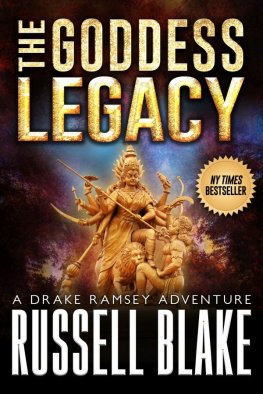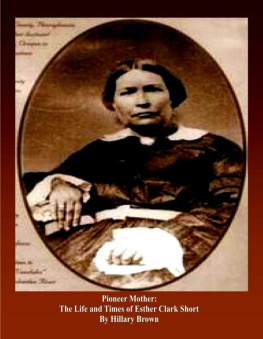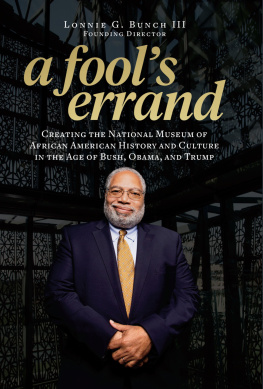Lonnie T. Brown - Defending the Publics Enemy: The Life and Legacy of Ramsey Clark
Here you can read online Lonnie T. Brown - Defending the Publics Enemy: The Life and Legacy of Ramsey Clark full text of the book (entire story) in english for free. Download pdf and epub, get meaning, cover and reviews about this ebook. year: 2018, publisher: Stanford University Press, genre: Politics. Description of the work, (preface) as well as reviews are available. Best literature library LitArk.com created for fans of good reading and offers a wide selection of genres:
Romance novel
Science fiction
Adventure
Detective
Science
History
Home and family
Prose
Art
Politics
Computer
Non-fiction
Religion
Business
Children
Humor
Choose a favorite category and find really read worthwhile books. Enjoy immersion in the world of imagination, feel the emotions of the characters or learn something new for yourself, make an fascinating discovery.

- Book:Defending the Publics Enemy: The Life and Legacy of Ramsey Clark
- Author:
- Publisher:Stanford University Press
- Genre:
- Year:2018
- Rating:5 / 5
- Favourites:Add to favourites
- Your mark:
- 100
- 1
- 2
- 3
- 4
- 5
Defending the Publics Enemy: The Life and Legacy of Ramsey Clark: summary, description and annotation
We offer to read an annotation, description, summary or preface (depends on what the author of the book "Defending the Publics Enemy: The Life and Legacy of Ramsey Clark" wrote himself). If you haven't found the necessary information about the book — write in the comments, we will try to find it.
Defending the Publics Enemy: The Life and Legacy of Ramsey Clark — read online for free the complete book (whole text) full work
Below is the text of the book, divided by pages. System saving the place of the last page read, allows you to conveniently read the book "Defending the Publics Enemy: The Life and Legacy of Ramsey Clark" online for free, without having to search again every time where you left off. Put a bookmark, and you can go to the page where you finished reading at any time.
Font size:
Interval:
Bookmark:
DEFENDING THE PUBLICS ENEMY
The Life and Legacy of Ramsey Clark
Lonnie T. Brown, Jr.
STANFORD UNIVERSITY PRESS
STANFORD, CALIFORNIA
STANFORD UNIVERSITY PRESS
Stanford, California
2019 by Lonnie T. Brown, Jr. All rights reserved.
No part of this book may be reproduced or transmitted in any form or by any means, electronic or mechanical, including photocopying and recording, or in any information storage or retrieval system without the prior written permission of Stanford University Press.
Printed in the United States of America on acid-free, archival-quality paper
Library of Congress Cataloging-in-Publication Data
Names: Brown, Lonnie T., Jr., author.
Title: Defending the public's enemy: the life and legacy of Ramsey Clark / Lonnie T. Brown, Jr.
Description: Stanford, California: Stanford University Press, 2019. | Includes bibliographical references and index.
Identifiers: LCCN 2018054675 (print) | LCCN 2018056419 (ebook) | ISBN 9781503609174 (e-book) | ISBN 9781503601390 (cloth : alk. paper)
Subjects: LCSH: Clark, Ramsey, 1927 | LawyersUnited StatesBiography. | Attorneys generalUnited StatesBiography. | LCGFT: Biographies.
Classification: LCC KF373.C562 (ebook) | LCC KF373.C562 B76 2019 (print) | DDC 340.092 [B]dc23
LC record available at https://lccn.loc.gov/2018054675
Cover design by Rob Ehle
Cover photograph: Courtesy LBJ Presidential Library
Text design by Kevin Barrett Kane
Typeset at Stanford University Press in 10/15 ITC Galliard Pro
To my grandfather, Dr. Alexis J. Richards, who inspired
my professional path, and my mentor, Professor Donald
J. Hall, who guided and kept me on this course.
Speak out on behalf of the voiceless, and for
the rights of all who are vulnerable.
Proverbs 31:8 (Common English Bible)
TABLE OF CONTENTS
PROLOGUE
IT WAS THE MORNING of November 8, 2008, and I was about to have my first formal meeting with Ramsey Clark concerning this book. As I waited anxiously for him in the lobby of his aging Greenwich Village apartment building, I pondered what he would be like when we finally met face to face. Although I am somewhat reluctant to admit it, this was actually not my first encounter with him. We had been in each others company on two previous occasions, but both were memorably underwhelming.
In 1995, while interviewing for a teaching position at the University of Cincinnati College of Law, I was informed by my faculty host that in addition to a full day of interviews, I was also going to be treated to dinner and a lecture by none other than Ramsey Clark. Clearly, I was supposed to be impressed; however, I must embarrassingly disclose that I had no idea who he was. The name sounded familiar, but beyond that I had nothing. Everyone assumed that I knew the luminary with whom I had been invited to dine, and I was too self-conscious to tell them otherwise. They spoke of him as if he were some famous rock star or athlete, recognizable by a single name, like Elvis or Madonna or Prince. So, instead of outing my unhip ignorance, I clumsily feigned familiarity. A rather inauspicious beginning for his future biographer, huh? It gets worse, though.
The dinner was mind-numbing. I recall almost nothing about it except that I was seated at a circular table diagonally from Clark, he talked a lot, and the other dinner guests seemed totally engaged. I cant remember any of the topics discussed or even what I ate. I vaguely recollect that I struggled at first to follow the discussion in an effort to piece together who he was, but I quickly gave up and just tuned out. If anything, I was resentful of Clark for upstaging and monopolizing what was supposed to be my interview dinner. I dont think I spoke a single word besides placing my food and drink orders. To make matters worse, when we finished eating, I still had to sit through his lecture, which I found to be a rambling, sleep-inducing mess, literally. When I glanced over at my interview host, he was sound asleephead back, mouth open. I figured, thankfully, this would be the first and last time that I would have to endure Ramsey Clark. I was wrong.
Our paths crossed again five years later at the University of Illinois College of Law during my second year there as an assistant professor. This time, I had a better idea of who he was, but only because I had taught a case in my civil procedure class in which he was sanctioned for having filed a frivolous lawsuit. The case was Saltany v. Reagan, as in President Ronald Reagan. Not surprisingly, Clark was not the presidents lawyer. I will have much more to say about this case later. It is an important part of the journey.
My enhanced familiarity with Ramsey Clark did little to make this encounter any more meaningful than my first. He again delivered a lecture to the law school community, and notwithstanding my best efforts to pay close attention, it was no use. He quickly lost me with another meandering wreck of a speech. The question-and-answer session that followed was even more frustrating. I vividly recall him taking a rather straightforward inquiry from a student and transforming it into an opportunity for a ten-minute soliloquy on something that had nothing whatsoever to do with the question posed. I have since learned that he has a habit of doing this, even in casual conversation. I think it is unintentional, but Im not altogether sure. Sometimes after a long, seemingly irrelevant verbal detour, he wanders back to the subject and reveals the pertinence of what had appeared to have been a tangent. He may have done that at Illinois, but, at this juncture in our relationship, I had neither the interest nor the patience to stick with him.
After Clarks lecture, there was a dinner in his honor, mercifully far less intimate than our previous one in Cincinnatijust about all of the faculty were in attendance. He said a few words to the gathering, and I do remember him being remarkably unassuming and gracious. I would not characterize him as overtly friendly, but he was definitely warm and genuine. I still did not understand why he seemed to be such a big deal to so many people, but this time I sensed something cool about him. My second meeting with Ramsey Clark created a bit of intrigue. Perhaps it would be worth learning more about him.
This was in 2000, and with each succeeding year, I dug deeper and deeper into his background, focusing principally on his tenure in the Department of Justice, but I also delved, at least superficially, into some of his controversial representations and causes. I began to notice that my students always got particularly energized when we covered Saltany v. Reagan. Then I realized that it was actually me who was energized. So maybe I was simply projecting my growing personal fascination with Lyndon Johnsons former attorney general. I really wanted to know why someone who seemed to have been a pillar of the establishment would sue a sitting president. I was curious, but not to the point of wanting to pour myself into what seemed like a side project. I was an untenured assistant professor after all. I did not have time to pursue intellectual titillation.
My perspective changed in 2005 when Ramsey Clark provided me with the incentive I needed to make his journey mine. In that year, he volunteered to be a part of the team of lawyers defending former Iraqi president Saddam Hussein in his high-profile trial on war crime charges. As I had learned through my general research, Clark was not shy about taking on puzzlingly controversial clients, but Saddam Hussein? Why on earth would a former U.S. attorney general willingly side with a man who was the number one enemy of the nation that he had ably and courageously served throughout the 1960s? I had to find out.
I spent almost two years researching and writing a law review article titled Representing Saddam Hussein: The Importance of Being Ramsey Clark.Stephen Gillers of New York University Law School, a prominent legal ethics scholar whom I admired and was casually acquainted with, contacted me about my article. As it turns out, he was a close friend of Clark. Professor Gillers had worked on his U.S. Senate campaigns and had been an associate at the New York law firm where Clark practiced during the early 1970s. He indicated that he liked my article, and I told him about my interest in writing a full biography. Gillers then suggested that I write Clark about this and send him a copy of the article.
Next pageFont size:
Interval:
Bookmark:
Similar books «Defending the Publics Enemy: The Life and Legacy of Ramsey Clark»
Look at similar books to Defending the Publics Enemy: The Life and Legacy of Ramsey Clark. We have selected literature similar in name and meaning in the hope of providing readers with more options to find new, interesting, not yet read works.
Discussion, reviews of the book Defending the Publics Enemy: The Life and Legacy of Ramsey Clark and just readers' own opinions. Leave your comments, write what you think about the work, its meaning or the main characters. Specify what exactly you liked and what you didn't like, and why you think so.









